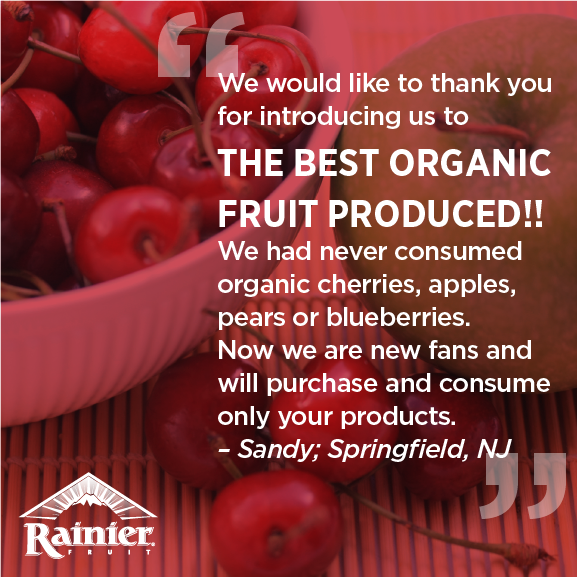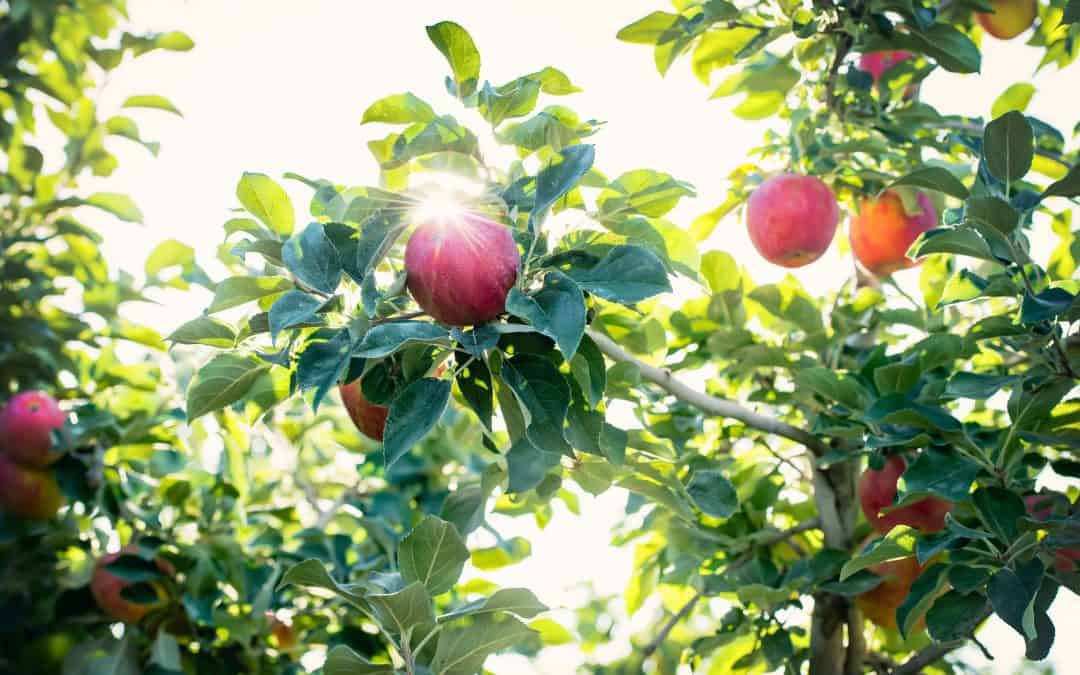September is National Organic Month so we thought it would be a good time to tell you about our organic fruit, and take a look at how this whole organic food business got started.
If history is correct, some of the first organics were being cultivated as early as 1940, and by 1970 some niche markets for organic food were finding favor with farmers and consumers deeply rooted in eco values. But like many things, change happens whether you want it to or not and it often doesn’t come easy. By 1990 changing agriculture production and eager consumers looking for more food choices necessitated the development of some kind of industry standards and the Organic Food Production Act was passed by Congress.
“Did you know that in the early days of the organic movement, any product direct from the farm to the consumer was considered organic.”
Well, like most things in government, it takes a lot of people, a lot of opinions and a lot of time to gain national agreement and it wasn’t until 2002 that the National Organic Standards were adopted that hold all organic producers to the same rules and regulations.
So in a nutshell…what do those standards mean?
First – any land used for organic production must have no prohibited substances applied to it for three years before you can harvest an organic crop from it. That doesn’t mean you don’t use the land. The land can still grow fruit or vegetables and you can harvest them, but you need to follow organic farming practices and you can’t sell the harvested products as organic during this time.
Secondly, the inputs for your crops must be organic in nature and managed through a variety of management practices like conservation tillage, crop rotations, cover crops, biological or mechanical controls and more. There is a short list of approved organic controls and a very long list of stuff not to do or use.
But the do’s and don’ts did not deter us, and back around 1998 we decided to give organics a go. Just like our earliest generations had left the Shenandoah Valley of Virginia and headed west in search of opportunity, four generations later we knew that our legacy still depended on that same pioneer spirit and our new frontier was organics.

The early years were hard. We succeeded, we failed and we tried again. We researched, we asked questions, we experimented, and gradually we learned. And more importantly, day by day we began reaping the benefits of that big leap.
Today less than 7% of all apple production in Washington is organic, even though organic production and consumer demand is expanding at a rapid rate. We know that you as consumers want more organics. The sales tell us you are buying more and more and your kind words when you try our organic fruits prove to us we are doing the right thing.
Just like it’s a choice for you to buy organics, it’s a choice for us to grow organics. It’s about our values system…our fundamental belief that we should be wholesome to the core. It’s this single statement that reminds us to focus on healthy lifestyles that support our consumers and the environment we love.
From thriving honeybee populations for population thanks to our wildflower plantings, to ladybugs, owls and more, we are nurturing more nature and reaping the rewards with healthier ecosystems everywhere we turn. And healthy changes to our growing operations didn’t just occur in our organic production. We’ve applied many of our organic growing techniques and learnings to our conventional production that allow us to continue to make sustainable leaps in all of our orchards.
Ghandi famously said… “be the change you want to see in the world.” The change we wanted to see was a sustainable change to our growing operations that would benefit the environment for generations to come. We have been in the apple business for over 120 years and we hope to continue to be in business for centuries more.
Whether you chose organics or conventional fruits and vegetables, know that healthy foods like fruits and vegetables are the first step in a wholesome to the core lifestyle.
Happy National Organics Month.

